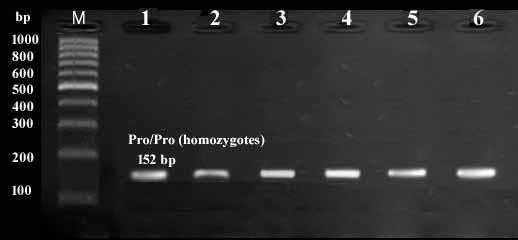The association of TP53 (Arg72Pro) rs1042522 C>G polymorphism and colorectal cancer susceptibility in Duhok individuals
DOI:
https://doi.org/10.21271/ZJPAS.35.4.20Keywords:
TP53 (Arg72Pro) rs1042522 C>G polymorphism, colorectal cancer, DuhokAbstract
Background and aim: The TP53 gene encodes an important class of cell cycle and tumor-suppressing factors that play critical roles in maintaining genomic stability. The TP53 Arg72Pro (rs1042522 C>G) polymorphism has been reported to be associated with the risk of several types of adult cancers. Objective of this study was to investigate the possible association between TP53 Arg72Pro polymorphism with colorectal cancer and to examine its correlation with age groups, Tumor type, Nodal state, and Duck stage of individual.
Patients and methods: The study involved 50 patients with colorectal cancer (25 males and 25 females). This study was conducted to estimate the distribution of colorectal cancer within age groups, Tumor type, Nodal state, and Duck stage of individual also to investigate the distribution of TP53 Arg72Pro SNPs genotype in colorectal cancer, and determine whether TP53 Arg72Pro polymorphism is a possible relevance in susceptibility to colorectal cancer using RFLP-PCR analysis.
Results: The present study shows there were no statistically significant differences between the different age groups and Dukes states with gender. Additionally, tumor types and nodal states (either positive or negative) of colorectal cancer were significantly different with gender. Also, this study revealed that 10 (20.0%) colorectal cancer patients had a 152 bp undigested PCR product fragment representing homozygotes for proline, 8 (16.0%) had two 50 and 102 bp fragments representing homozygotes for arginine, and 32 (64.0%) had three 50, 102, and 152 bp fragments representing heterozygotes for proline. The results of control genotypes showed 14 (28.0%) people with a fragment of 152 bp indicating homozygotes proline, 20 (40.0%) with two fragments representing homozygotes arginine, and 14 (28.0%) with three bands showing heterozygotes for codon 72.
Conclusion: No substantial differences (P>0.05) between the frequency of Arg72allele and Pro72allele in colorectal cancer -affected males as opposed to the frequency of Arg72allele and Pro72allele in the control groups. In relation to the frequency of Arg72allele and Pro72allele in females, indicates substantial differences (P>0.05).
References
Abudabous A, Drah M, Aldehmani M, Parker I, AL Qawi O. (2021). KRAS mutations in patients with colorectal cancer in Libya. Mol Clin Oncol. 15(4): 197-203. DOI: 10.3892/mco.2021.2359.
Ahmed HG, Alawad GM, Alharbi SH, Alreshidi FS, Alotaibi AD, Alshaikh AA. (2017). Histopathological pattern of colorectal cancer in relation to age and gender in northern Saudi Arabia. J Cancer Prev Curr Res,8(3):283‒287. 10.15406/jcpcr.2017.08.00281
Aizat AA, Shahpudin SN, Mustapha MA, Zakaria Z, Sidek AS, Abu Hassan MR. et al.(2011). Association of Arg72 Pro of P53 Polymorphism with Colorectal Cancer Susceptibility Risk in Malaysian Population, Asian Paciic J of Cancer Prevention, 12(11), 2909-13.
Al-Gazally M, Al-Awad A, Kzar H. (2016). Assessment of antioxidant status in different genotypes/phenotypes at codon 72 of TP53 gene for patients with sporadic colorectal cancer in Babylon province. International Journal of PharmTech Research,9(3), 280-286.
Alzahrani SM, Doghaither HA, Al-Ghafari AB.(2021). General insight into cancer: An overview of colorectal cancer (Review), Molecular and clinical oncology,15(6), 271-9. doi: 10.3892/mco.2021.2433. doi: 10.3892/mco.2021.2433.
Aubrey BJ, Strasser A, Kelly GL. (2016). Tumor-Suppressor Functions of the TP53 Pathway, Cold Spring Harb Perspect Med J, 6(5), a026062. doi: 10.1101/cshperspect.a026062.

Downloads
Published
How to Cite
Issue
Section
License
Copyright (c) 2023 Salar Saadi Hussain Dizayee

This work is licensed under a Creative Commons Attribution 4.0 International License.













